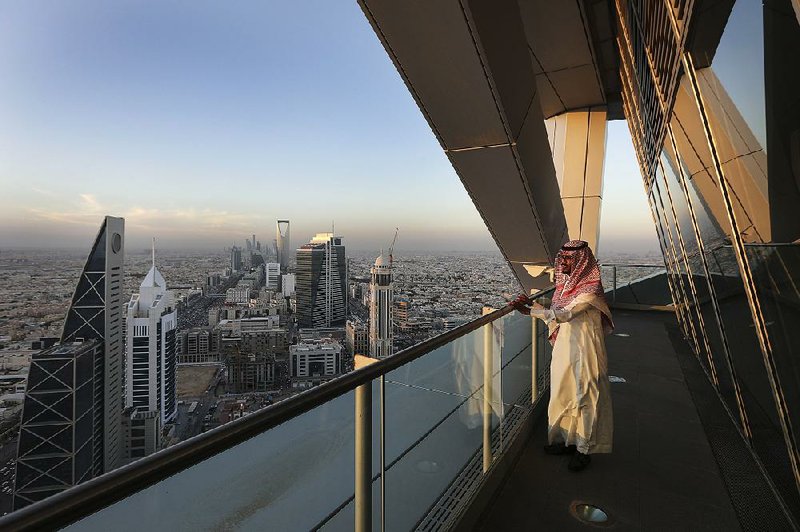Saudi Aramco could have a market value of more than $1 trillion in an initial public offering after the government lowered the oil producer's tax burden to attract investors, analysts at Sanford C. Bernstein & Co. and Rystad Energy AS said.
The tax cut will increase Aramco's after-tax income by 300 percent, allowing for higher cash returns to shareholders and giving the company, known officially as Saudi Arabian Oil Co., a potential market value of $1 trillion to $1.5 trillion, Bernstein analysts said in a report. Rystad Energy increased its valuation of Aramco by 250 percent to $1.4 trillion, assuming a long-term oil price of $75 a barrel.
The Saudi government announced Monday that it's reducing Aramco's tax rate to 50 percent from 85 percent, as it prepares to offer investors as much as 5 percent of the world's biggest oil exporter in what could be a record IPO. Estimates of Aramco's potential valuation vary widely. Deputy Crown Prince Mohammed bin Salman has said it's worth about $2 trillion. Prior to the tax change, consultant Wood Mackenzie Ltd. valued the company at around $400 billion, according to clients who attended a private briefing earlier this year.
"Before the reduction in tax, it was hard to argue that Aramco should trade at an equivalent value to Western oil peers" such as Exxon Mobil Corp., Bernstein analysts Neil Beveridge and Oswald Clint said in the report. "With the reduction in tax to 50 percent, profitability per barrel is more in line" with those peers, and could be higher still, they said.
Saudi Aramco produces close to 10 million barrels a day, about 2 1/2 times more than Exxon, which is valued at $337 billion. It also has vast deposits of low-cost crude, further augmenting its value, assuming that an independent audit backs up the company's reserves estimate, Bernstein said.
Saudi Arabia's budget deficit is unlikely to widen as a result of the tax cut because the lost government revenue will be "mostly" offset by increased dividends, according to Bernstein. The reduction in Aramco's tax rate is likely to be "budget neutral," said Monica Malik, chief economist of Abu Dhabi Commercial Bank.
Aramco also pays a 20 percent royalty on its oil revenue, a levy that Monday's announcement left unchanged.
The sale of a 5 percent stake in Aramco at a $1 trillion valuation would raise $50 billion for the kingdom, which is trying to reform and diversify its oil-dependent economy. China's e-commerce business Alibaba Group Holding Ltd. has claim to the world's biggest IPO, after it raised $25 billion in 2014.
A profitable share sale would anchor a sovereign wealth fund that the Saudi government expects will generate enough investment income to be the dominant source of state revenue by 2030. Global demand for oil will peak before then, according to projections by Royal Dutch Shell PLC, as alternative fuels and electric cars gain in popularity.
The IPO will probably take place in the second half of 2018, according to Aramco Chief Executive Officer Amin Nasser.
Aramco, which is raising debt ahead of the share sale, set final pricing for its Islamic bond debut, according to a person with knowledge of the matter. Aramco is seeking to raise about $2 billion in its debut sale of Islamic bonds under a $10 billion program, people with knowledge of the matter said this month.
Information for this article was contributed by Archana Narayanan Javier Blas and Wael Mahdi of Bloomberg News.
Business on 03/29/2017
